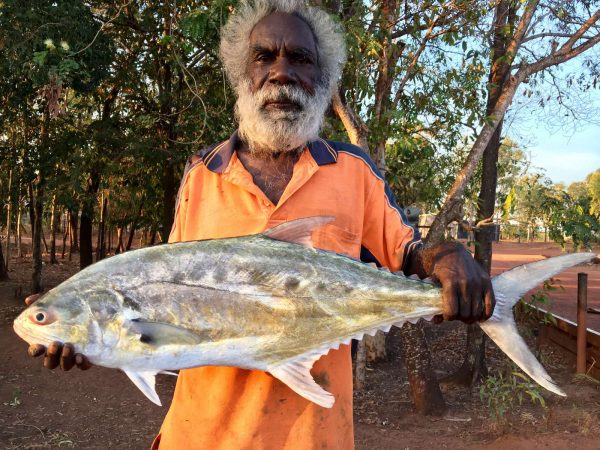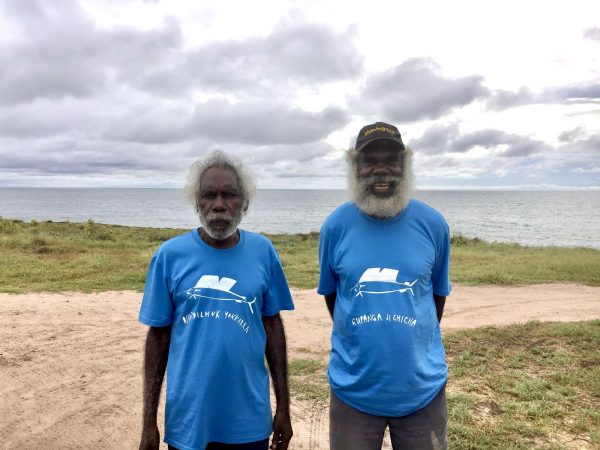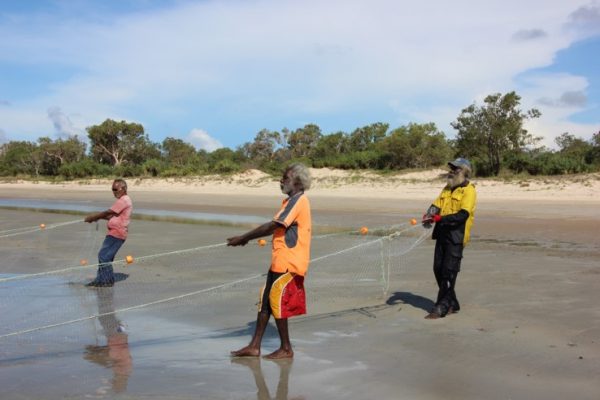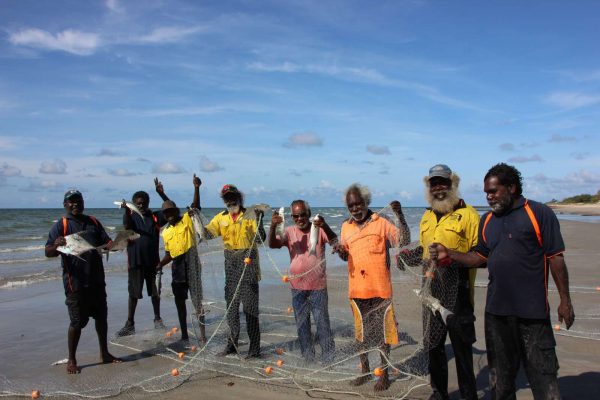People
Our seafood ventures follow the leadership, guidance and knowledge of senior saltwater men, fishermen and sea country owners Don Wilton, Jimmy Olsen, Stuart Yirawara Ankin and mud crab expert Michael Anjarramarr.
Don Wilton

I grew up on Goulburn Island, my father is from that country, and when I was about 15 or 16 I was brought to Nardilmuk and told about how that was the land of my grandfather. I’m a traditional owner there now, and I live there. My fathers were very good fishermen, and they taught me how to fish the old way, with dug-out canoes, and cast nets and traditional fish traps. My fathers used to take me out and we used to hunt turtles, dugong, fish and crabs with spears and with those nets and traps. The old ladies used to make and mend those nets and fish traps, when we got a big fish in there or a crocodile or shark breaks it, they’d used to fix it.
One day in 2015, I was sitting on the cliff drinking tea on my land at Nardilmuk, watching a big mob of mullet go by, and I thought to myself ‘I’ve got to go talk to the local government and see what we can do to start something with all this seafood. I started just me and a 25-metre fishing net. I made an esky from a big tub and some ice and just went around the town selling it myself. Then BAC approached me and wanted to work with me to grow my business and it’s grown much bigger now. When the Aboriginal Coastal Fishing Licence came through, I was the first person to start fishing on that licence, and I began on my home country at Nardilmuk.
That’s what I’m planning, for us three who have our fishing licence so we can make money for our families and communities, so people can stay on their homelands and live there.At the moment we sell to the Darwin fish market, in 200-kilo batches, and we’re looking at other companies around Australia for fileted fish and crabbing. Back in the old days, when we used to catch too much fish, we used to get everyone together and share it with all the neighbouring mobs. In today’s world, we can share it with even more people, with white people too, and we can make money for the community and for the people who own the land.
Stuart Yirawara Ankin

My country is near the Blythe river, that’s where I grew up, and we had a small school there, a teacher would come and we built a shelter to learn in out of paperbark.I first learnt to fish here at Maningrida, near the barge landing, on the right-hand side, if you go down that way. My father and other men used to take me in the canoe which he’d make out of the Bombax tree with the red flower. We used to get dugongs, crab and fish too, all kinds. For some, we’d use the three-prong spear, for some others, like the turtle only one prong. At night time, we used to go out to find turtle. We can’t find them in the day time but at night they’d go out and come back with turtles.
In the morning they’d wake me up and say ‘Hey we got turtle!’ When I was about 7 or 8 I used to go to school here in Maningrida, and they’d teach me to fish on the weekend. Sometimes we’d camp on the other side of the river and my father would make a sail in the canoe so we didn’t have to paddle on the way home. He used to tell me about the different fish and the totems – my totem is a Rockcod and sea eagle. I started with the fishing enterprise a couple of years ago when I got my Aboriginal Coastal Fishing licence.
In the wet season, we fish around here, and in the other seasons when the roads dry out, I do it on my country near the Blythe River. When we get them bush fruits, we know how the seasons are changing. I see that yellow flower and I know that the fish will get fat and it’s changing their taste. With the crab we have different types, the males have red inside, and the females have yellow – like gravy, and you can choose what you feel like, different flavours. We find them all over, on the beach, the rock, the salt pan. My favourite time of the year to catch fish is just after the wet season, coming up to the dry. I catch catfish and barramundi, those are my favourite.

Fishing and crabbing crew
Our leaders work with a crew of motivated fishermen and crabbers, all saltwater people from the coastal homelands around Maningrida.

